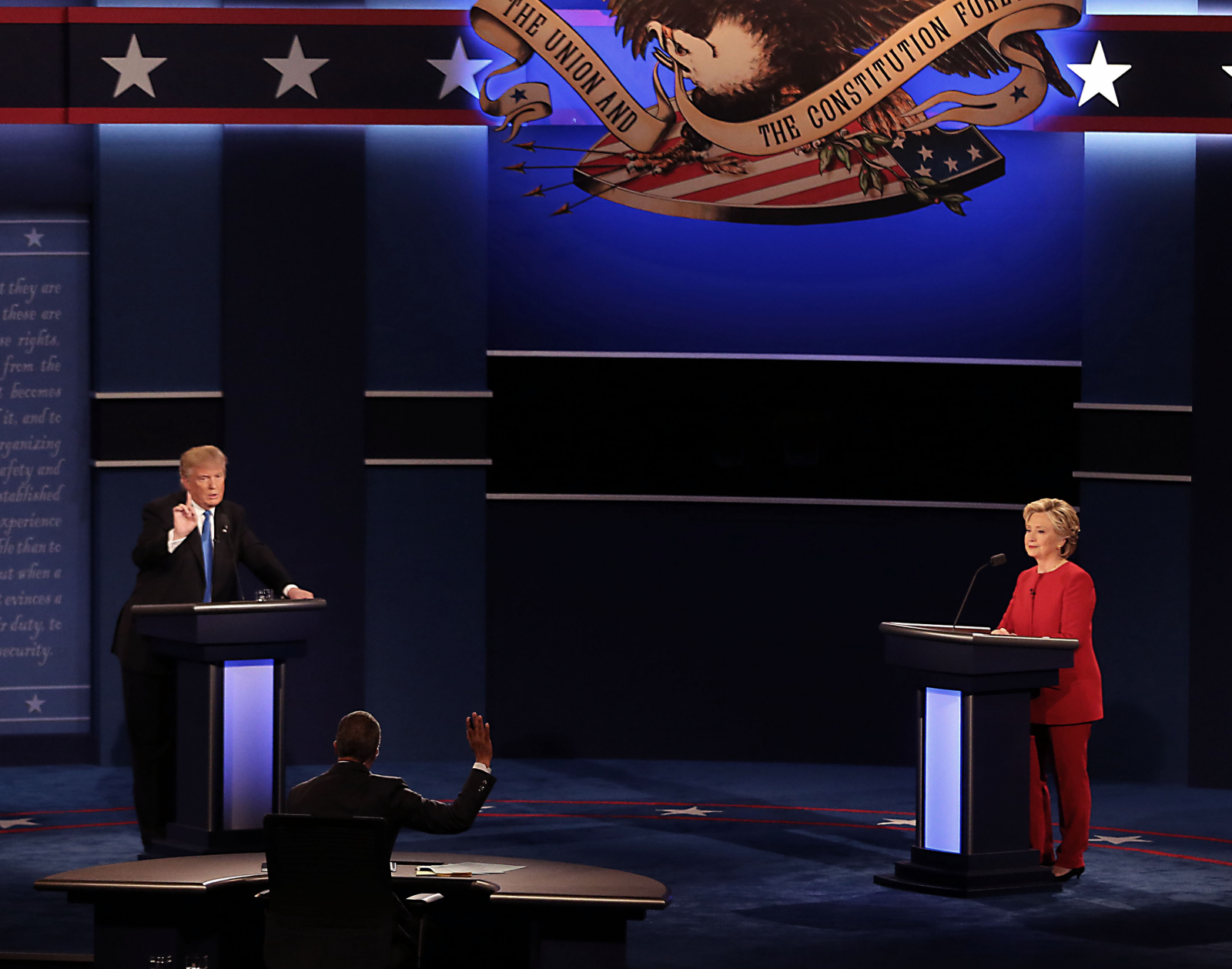
Trump and Clinton at First Presidential Debate of 2016
SHARE
ISSUES
As Americans watch the three general election presidential debates and one vice presidential debate this fall, many may not realize that such debates have become a global phenomenon. The Commission on Presidential Debates (CPD) is a nonpartisan nonprofit organization that has sponsored and produced all U.S. general election debates since 1987. Over time, CPD has expanded its work to support debates around the world.
NDI works with the CPD to help local partners sponsor debates and overcome the political and production hurdles in many diverse nations. In the program provided to audience members at each U.S. debate, the CPD describes the worldwide movement toward candidate debates:
“The CPD, in partnership with the National Democratic Institute (NDI), helps debate sponsors around the world pool their expertise and assist each other, in both organizing debates for the first time and improving debates where they have taken place before. The support draws on the CPD and NDI collective experience with more than 300 debates in 35 countries at all levels of elected office and the conviction that there is no single best way to organize debates.”
- The 2016 Presidential Debates -- Commission on Presidential Debates
The first U.S. televised presidential debate featuring John Kennedy and Richard Nixon was held on September 26, 1960 and there have been 30 more since that year. More than 80 countries and regions now hold such debates. This year debates have been held in the Democratic Republic of Congo, Dominican Republic, Guatemala, Guyana, Haiti, Morocco, Peru, Philippines, Serbia and Zambia.
Presidential Candidates Debate in Lima, Peru in March 2016
Candidate debates have become an essential part of elections in many countries. Debates are regularly cited as the single most important factor in helping voters decide whom they will choose as president. In contrast to rallies and stump speeches, televised debates allow voters to see candidates in unscripted spontaneous moments, including responses to tough questions from moderators, audiences, and opponents. Debates can show how well candidates are prepared, how they think on their feet, and how they respond under pressure: all very important qualities in determining the next president.
Such debates matter to voters. In the U.S., presidential debates have included pivotal moments that help frame the issues upon which voters make decisions. Even the perspiration on the brow of candidate Richard Nixon in 1960 became a factor in that election. The first debate that occurred between candidates Hillary Clinton and Donald Trump on Monday night, September 26, shattered all previous records and was the most-watched debate in American history. According to Nielsen, the debate reached 84 million viewers across 13 of the TV channels that carried it live. Millions more watched the debate via live streams on the web and internationally so the total audience was even higher.
In the last three decades, CPD and NDI have brought together debate groups from around the world to develop criteria on who to invite, how to create compelling and informative formats, and how to generate media support for debates. Such symposiums resulted in the creation of the 25-nation Debates International network and the comparative handbook Organizing and Producing Candidate Debates: An International Guide.
On October 19, 2016 at the culminating U.S. presidential debate at the University of Nevada, Las Vegas (UNLV), CPD and NDI are hosting 45 debate organizers from 25 countries in the Debates International network. The observers will see the debate hall, media center, and UNLV’s educational programs for students. Such observation will allow these experts to develop practical approaches to further improve debates.
This year, more than ever, U.S. debates and the presidential race in particular have attracted global attention. NDI and CPD continue to play a role in helping voters around the world use debates to make informed decisions and to deepen their democracy.
Published on October 9, 2016



